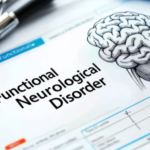What Causes Knee Pain?
Anterior knee pain often stems from overloading the joint, such as engaging in activities like jumping or running beyond the knee’s current capacity. However, pinpointing a single cause for knee pain isn’t always possible. It’s crucial to recognize that factors beyond tissue injury can contribute to pain persistence, including past pain experiences, beliefs about pain, mental state (like stress or anxiety), and sleep quality.
How Can You Improve It?
Managing physical activity levels can often alleviate knee pain. This doesn’t mean completely avoiding movement or pain but rather regulating the loads on your knee to decrease pain levels. Here are some examples:
- Modify Activities: Reduce or change activities that worsen your pain, especially in the initial two months.
- Gradual Progression: After a few months, gradually reintroduce activities. Progress slowly and avoid rushing back to previous training levels.
- Stay Active: Inactivity can further reduce your knee’s load tolerance. Find activities that unload your knee, such as cycling or swimming, to maintain overall fitness and strength.
- Rehabilitation Exercises: Commit to prescribed rehab exercises, focusing on strengthening lower leg, hip, trunk, and upper body muscles. Balance is key to recovery.
Pain Monitoring:
While focusing solely on pain isn’t recommended, monitoring pain levels can be helpful, especially when overloading is a factor. Pay attention to how activities affect your pain, ensuring you can progress without a significant increase in pain. Remember, other factors besides activity can influence pain, so it’s essential to consider the broader context.
- Anterior Knee Pain Causes: Anterior knee pain commonly arises from overloading the joint, often due to activities such as running or jumping that exceed the knee’s current capacity. However, identifying a single cause for knee pain isn’t always straightforward. Various factors, including past pain experiences, beliefs about pain, mental state (such as stress or anxiety), and sleep quality, can contribute to the persistence of knee pain.
- Improvement Strategies: Managing knee pain involves a multifaceted approach aimed at reducing symptoms and improving function. Here are some strategies to consider:
- Modify Activities: It’s essential to reduce or change activities that exacerbate knee pain, especially in the initial stages of recovery. This may involve temporarily avoiding high-impact exercises or activities that place excessive strain on the knee joint.
- Gradual Progression: After the initial phase of pain management, gradually reintroduce activities in a structured manner. It’s crucial to progress slowly and avoid rushing back to previous training levels to prevent re-injury or exacerbation of symptoms.
- Stay Active: Inactivity can further reduce the knee’s load tolerance and contribute to muscle weakness and stiffness. Engaging in low-impact activities that unload the knee, such as cycling or swimming, can help maintain overall fitness and strength while minimizing stress on the joint.
- Rehabilitation Exercises: Commit to a prescribed rehabilitation program that includes exercises aimed at strengthening the lower leg, hip, trunk, and upper body muscles. Improving muscle balance and coordination is essential for supporting the knee joint and facilitating recovery.
- Pain Monitoring: While focusing solely on pain isn’t recommended, monitoring pain levels can provide valuable feedback, especially when overloading the knee is a contributing factor. Pay attention to how different activities affect your pain levels and adjust accordingly. It’s essential to strike a balance between pushing yourself to progress and avoiding activities that exacerbate pain or discomfort.
- Patience and Consistency: Patience and consistency are crucial for effectively managing knee pain. Recovery from knee injuries or chronic pain conditions often takes time, and progress may be gradual. It’s essential to stay committed to your rehabilitation program, adhere to activity modifications, and prioritize strengthening exercises to support long-term recovery and prevent recurrence of symptoms.
Improving knee pain involves a combination of activity modification, gradual progression, staying active, engaging in rehabilitation exercises, and monitoring pain levels. By adopting a holistic approach and remaining patient and consistent, individuals can effectively manage knee pain and support their recovery journey.






